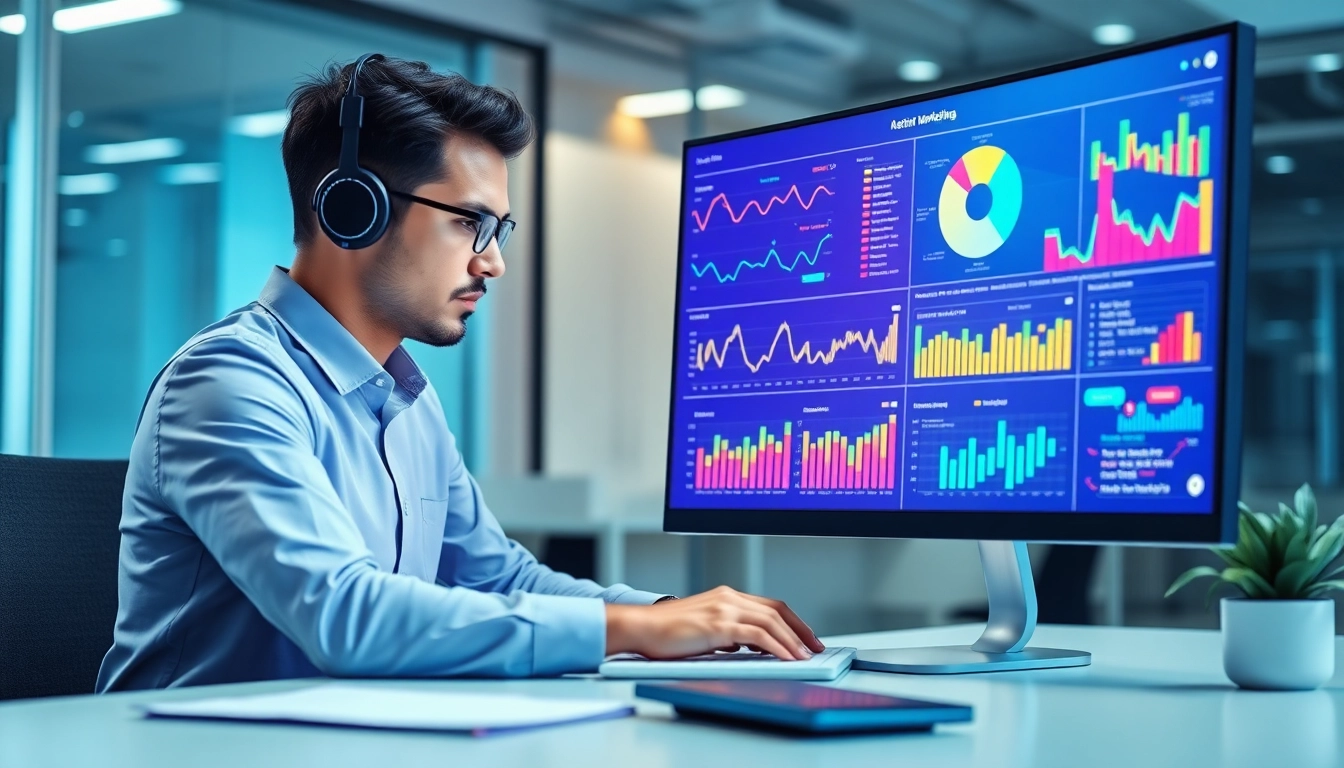Understanding the Role of Commercial Landscaping Contractors
In today’s competitive business landscape, maintaining an aesthetically pleasing and functional outdoor space is essential for corporate entities. This is where commercial landscaping contractors come into play. They are specialized professionals who design, install, and maintain outdoor environments for businesses, ensuring that the landscapes are not only visually appealing but also sustainable and functional. Their expertise can significantly impact a company’s image, the environmental impact of their operations, and even boost employee satisfaction.
What Services Do They Offer?
Commercial landscaping contractors offer a variety of services tailored to meet the specific needs of businesses. These services generally include:
- Landscape Design: Creating visually appealing and functional layouts that align with the client’s brand and functional needs.
- Installation Services: Planting trees, shrubs, and flowers; installing hardscapes such as walkways, patios, and retaining walls; and setting up irrigation systems.
- Lawn Maintenance: Regular care including mowing, fertilization, aeration, and pest management to ensure a healthy landscape.
- Seasonal Cleanups: Preparing the landscape for different seasons with adequate cleanup, mulching, and planting seasonal flowers.
- Irrigation Systems: Designing and installing efficient irrigation systems to conserve water while keeping the landscape healthy.
- Renewal and Revitalization: Updating existing landscapes with new plants, redesigning layouts or replacing hardscapes that have become outdated or damaged.
The Importance of Professional Expertise
Engaging a commercial landscaping contractor isn’t just about having a beautiful lawn; it’s about the expertise that these professionals bring to the table. Their knowledge in horticulture, botany, design, and sustainability means they can create solutions that are not only beautiful but also functional and environmentally friendly. Professional landscapes can enhance curb appeal, create inviting spaces for personnel and clients, and often require less maintenance due to thoughtful planning and execution.
Common Myths About Landscaping Contractors
There are several misconceptions about landscaping contractors that may hinder businesses from engaging professional help:
- Only Useful for Aesthetics: Many believe that landscaping is only about appearance, but it significantly influences functionality and ecological balance.
- Only Large Projects Matter: Some think they need extensive grounds to warrant professional landscaping when even small spaces can benefit from expert care.
- DIY is Cheaper: While DIY may save upfront costs, the long-term benefits and potential cost-savings from having a professional can outweigh those initial savings.
- All Contractors are the Same: Not all contractors have the same level of expertise or specialization. Researching and choosing the right contractor is crucial.
Key Benefits of Hiring Commercial Landscaping Contractors
Investing in professional landscaping can yield various benefits for businesses. Here are some of the key advantages:
Boosting Aesthetic Appeal and Client Impressions
The exterior of a business forms the first impression for visitors. An attractive landscape can communicate professionalism, attention to detail, and a commitment to quality. Whether it’s lush greenery, vibrant flowering plants, or well-maintained hardscapes, a beautiful landscape can captivate customers and clients, encouraging them to engage deeper with the brand.
Enhancing Environmental Sustainability
Given the growing focus on sustainability, companies are increasingly looking to landscapes that reflect their commitment to the environment. Commercial landscaping contractors are equipped to implement sustainable practices, such as:
- Native Planting: Utilizing plants that are native to the region, requiring less water and maintenance.
- Water Management: Designing landscapes that can manage and conserve water through smart irrigation systems and water-efficient practices.
- Green Infrastructure: Implementing features such as green roofs or permeable pavements that contribute to biodiversity and the ecological health of the area.
Increasing Property Value Over Time
Well-designed landscapes can significantly increase property values. A thoughtfully designed outdoor space not only looks appealing but also provides functional benefits that can enhance a business’s bottom line. Prospective buyers are willing to pay a premium for properties that offer beautiful surroundings, leading to a higher resale value in the long run.
Choosing the Right Commercial Landscaping Contractor
Selecting the right commercial landscaping contractor is integral to the success of your landscaping project. Here’s how to make an informed decision:
Qualifications and Certifications to Look For
When choosing a contractor, check for necessary qualifications and certifications that can indicate a high level of professionalism and expertise. Look for credentials such as:
- Certifications from Landscaping Associations: Memberships in professional organizations indicate ongoing education and adherence to industry standards.
- Licenses: Ensure the contractor has all necessary licenses to operate in your jurisdiction.
- Insurance: Verify they have liability insurance and workers’ compensation to protect against potential accidents.
Asking the Right Questions During Initial Consultations
During consultations, asking the right questions can help gauge a contractor’s capability and suitability. Suggested questions include:
- What is your design process, and how do you collaborate with clients?
- Can you provide references from previous commercial clients?
- How do you address challenges such as soil quality, drainage issues, or climate considerations?
Reviewing Portfolios and Client Testimonials
Look for contractors with a robust portfolio showcasing their past work in commercial landscaping. Client testimonials and reviews can provide insights into their reliability, quality of work, and customer service. Consider reaching out to past clients to hear about their experiences first-hand.
Top Trends in Commercial Landscaping for Businesses
The world of commercial landscaping is continuously evolving. Being aware of the latest trends can help businesses stay relevant and competitive:
Sustainable Solutions and Native Plantings
As mentioned, sustainable landscaping practices are on the rise. Using native plants can significantly reduce water usage while promoting local biodiversity. Businesses that prioritize these practices not only contribute to environmental sustainability but also position themselves positively in the eyes of an increasingly eco-conscious clientele.
Incorporating Technology into Landscaping
Technology is playing an increasingly vital role in landscaping. Drones are now used for surveying and designing landscapes, while smart irrigation systems allow for real-time adjustments to water needs based on weather and soil moisture levels. Moreover, app-based landscape management tools enable property managers to monitor their landscapes efficiently.
Seasonal Maintenance Strategies
Adopting a seasonal strategy for lawn and landscape care ensures that the outdoor space remains in prime condition throughout the year. Contractors can create specific maintenance plans for planting, weeding, pruning, and more that align with seasonal changes, keeping the landscape vibrant and manageable.
Measuring Success: KPIs for Commercial Landscaping Projects
Once the landscaping project is underway, measuring its effectiveness can help gauge success and inform future projects. Key Performance Indicators (KPIs) to consider include:
Defining Clear Objectives and Expectations
Before initiating a landscaping project, it’s essential to define clear objectives. Whether it’s increasing foot traffic, improving employee satisfaction, or enhancing aesthetic appeal, having these targeted goals helps measure overall success.
Evaluating Aesthetic Improvements
Aesthetics can be subjective, but setting guidelines for what constitutes “improvement” can help in assessing if the landscaping has met or exceeded expectations. Surveys can be conducted among employees and clients to gather feedback on perceived changes in the landscape.
Assessing Cost-Effectiveness and ROI
Finally, analyzing the cost-effectiveness of the landscaping investment is crucial. This can include tracking the initial investment against gains in property value or customer engagement metrics, as well as potential long-term cost savings through reduced maintenance and water expenses.



